You are a world-renowned scientist. You spend years in a lab developing a top-notch variety of beans as part of the global drive to fight poverty by promoting food security in developing countries. Finally, you come up with a sample that contains the potential for an affordable solution to improve the nutrition of millions of low-income families.
This is the first step in a long chain of labor that will involve transfer of technologies to rural producers, but you have secured funding and expectations are high.
Yet, when your beans are test-marketed, consumers reject them. What went wrong?
"No one remembered to ask women whether they liked them," says Esperança Chamba, a researcher and head of cooperation at Mozambique's Agricultural Research Institute (IIAM). "It's not enough to be productive, you need to consider how much time it will take a woman to cook the beans and how much time she needs to collect firewood. And then there's flavor—if it doesn't taste any good, she will be held accountable for it."
Chamba, who specializes in natural resources management, is one of 11 women scientists in Mozambique who were selected from among hundreds of applicants from 10 sub-Saharan countries as fellows of the African Women in Agricultural Research and Development (AWARD) project.
AWARD was established in 2008 by the Gender & Diversity Program of the Consultative Group on International Agricultural Research (CGIAR), following a three-year pilot program in East Africa. It is a professional development program that strengthens the research and leadership skills of African women in agricultural science. The project is funded by the Bill & Melinda Gates Foundation and USAID.
"In Women's Hands"
Chamba's example of a failed attempt in experimental nutrition finely captures the context of women and agricultural research and development in Africa.
"Most of the work in the fields is in women's hands," says rural extension officer Claudia Nhatembe, during a break from the sweet potato fields on the rich soils of IIAM's Umbeluzi Agricultural Station, some 30 kilometers outside the capital, Maputo. "It's hard work—plowing, sowing, and harvesting. For men, it's mostly handling the plantation's irrigation systems."
In Africa, women like Nhatembe carry most of the burden of running the household, raising children, tending to their husbands, fetching water, collecting firewood, cooking and cleaning, and plowing and sowing. They are the pillars of society, yet are commonly ignored. "We give rural women a voice, because through our work, they will also have a voice," says Carla Menezes, a researcher and head of nutrition at IIAM.
"Scientists are on the cutting edge of solving Africa's food crisis. But we need to urgently address the gender gap in our scientific community," says Akinwumi Adesina, vice president of policy and partnerships of the Alliance for a Green Revolution in Africa. "We need more women pursuing careers in agricultural science because women are the face of African farming."
The Leaky Pipeline
Research shows that the number of women enrolling in agricultural sciences is steadily increasing, but women researchers tend to drop out as they move up the career ladder. Termed the "leaky pipeline," this phenomenon is generally attributed to traditional, male-dominated organizational dynamics, in addition to cultural barriers to women's education and advancement. AWARD seeks to reverse that trend.
"We need good collaboration to make sure that women are equal partners with men farmers all the way through the process," U.S. Secretary of State Hillary Rodham Clinton said recently in Nairobi. "The AWARD program is a great example. It supports women scientists working to improve farming here in Africa and to fight hunger and poverty. And we need women represented in our laboratories, as well as in our fields."
Recent studies indicate that the majority of those who produce, process, and market Africa's food are women, but only one in four agricultural researchers is female.
A study by AWARD and the Agricultural Science and Technology Indicators that looked at key trends in sub-Saharan Africa found that the overall proportion of female professional agricultural and higher education staff increased from 18 percent between 2000 and 2001 to 24 percent between 2007 and 2008. Female staffing levels were particularly low in Ethiopia, Togo, Niger, and Burkina Faso, whereas in Botswana, Mozambique, and South Africa levels were high. However, the benchmarking survey—which was conducted in 125 agricultural research and higher education agencies in 15 sub-Saharan countries—showed only 14 percent of the management positions were held by women.
"Only with the full involvement and leadership of women in agriculture will Africa succeed in its quest for food security and prosperity," says Vicki Wilde, director of AWARD and the CGIAR Gender & Diversity Program. "There is no time to lose."
Addressing the Gender Gap
Mozambique, a former Portuguese colony in southeastern Africa, is the only non-English speaking country represented in AWARD. With a population of 20 million, it was ranked 22nd out of 134 countries in the Gender Gap Index for 2010.
"We know the people who matter most aren't the financiers or the agriculture ministers or the assistance workers and partners. They are the women farmers who are the untapped solution to this problem," says USAID Administrator Rajiv Shah.
"We're working to ensure that women get equal access to services and support such as financial services that preferentially target women and extension services delivered by female workers. To make this happen, we are investing in women producer networks and expanding fellowship programs such as the AWARD program."
The 11 Mozambican fellows cover a broad range of agricultural sciences, from forestry management to agro-economics and veterinary medicine, including animal production, reproduction, and nutrition.
"I am inquisitive by nature. I feel enraptured by the process of looking at a problem, imagining solutions, and seeking the adequate answer," says Paula Pimentel, a senior researcher at IIAM, who is currently studying gender relations in goat-breeding families in the remote district of Chicualacuala, about 500 kilometers from Maputo.
What drives all these women is a focus on pro-poor, community-oriented research objectives, and an awareness of the need to combine traditional knowledge with modern methods to create scientific advancements.
"Learning from local techniques should always be the starting point," says Anabela Manhiça, senior researcher and head of the Technology Transfer Department at IIAM. "Rural producers have abundant knowledge. It's always best to learn what they are doing, how they are doing it, and then add the new technology. It doesn't work when you try to introduce something completely new."
The Politics of Independence
While all of them share a passion for furthering agricultural knowledge to benefit poor rural households, a career in scientific research was not everyone's first choice. Many were caught in the circumstances of Mozambique's fledgling growth following independence in 1975.
"It was a different political era," explains Sónia Maciel, a specialist in animal reproduction. Maciel is an accomplished researcher who is widely published in scientific journals, but her dream was to be a linguist. "Circumstances were such that people were sent to technical schools to meet the country's growth objectives and to fill certain positions in different economic areas."
Today, Maciel is among Mozambique's leading scientists, with groundbreaking research on the Nguni/Landim cattle, an important indigenous breed of the Southern Africa region. Through AWARD, she won a research placement at the Nairobi-based International Livestock Research Institute (ILRI), where she is now pursuing her PhD.
In Africa, cultural norms are among the major constraints that women in science careers face. Other constraints, according to AWARD, include family demands that tend to make women less mobile than male counterparts; the fact that some male managers are uncomfortable with female leaders; a lack of role models and poor access to support networks; and a lack of leadership skills and organizational support.
AWARD strengthens scientists' research and leadership skills, offering a comprehensive, yet flexible, career-enhancement fellowship program to build up the talent pool of highly skilled African women in agricultural research and development. It also corresponds directly to achievement of the United Nations Millennium Development Goals, with an emphasis on improving the skills of women agricultural researchers focused on the needs of women farmers.
To Mentor and Be Mentored
Each year, AWARD's steering committee selects 60 applicants from up to 900 candidates. The AWARD fellows remain in their place of employment or study while benefiting from a well-tested, coordinated career development package built on four cornerstones: mentoring, science capacity building, leadership development, and learning, monitoring, and evaluation.
Role modeling is another key aspect of the fellowship program. Isilda Nhantumbo, a consultant on natural resources management, remembers how she built a "wall of dreams" with a number of young women in Ndlavela, in the outskirts of Maputo.
"I chose this neighborhood because many girls there have no access to information on professional options, and they don't always fight for a career. They have children at a very young age and think life is over for them. Their parents were there and, in the end, they were pushing the girls to follow our example," says Nhantumbo, who is just getting accustomed to the bitter European winter after winning a coveted position at the University of Edinburgh.
Tools for Life
For the 11 fellows, AWARD is, above all, an empowering experience. Over a course of two years, AWARD develops researchers' skills in proposal writing, opens doors on the global stage of scientific research and decision-making, links them with key people in their field of expertise, and supports their presentation of scientific papers at conferences.
But the crucial change is not what ends on their resumes. "AWARD has given me more self-confidence and enabled me to be more resolute in attaining my goals," says Maciel, echoing the feelings of all 11 AWARD fellows.
"I'm already applying the same principles in my personal life," adds Manhiça. "What is my life purpose and how am I going to achieve it?" From timid researchers or withdrawn lab recluses to influential scientists with the power to determine decision-making processes for national and regional policies that will improve the livelihoods of Africa's poor—this is where Mozambique's AWARD fellows want to be.
"Sharing agricultural knowledge is one of the key factors that contribute to alleviating poverty and achieving food security," adds Marta Francisco, a researcher and communication manager at IIAM.
All 11 women say they share a vision of eradicating poverty and contributing to economic growth through food security and agricultural development. "These outstanding Mozambicans debunk the myth in some science circles that qualified African women researchers 'aren't out there'—that they don't exist in significant numbers," says Wilde. "Qualified women scientists are out there. These women prove it."







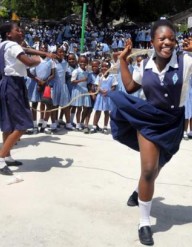

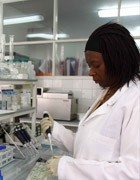
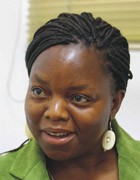
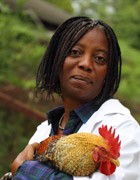
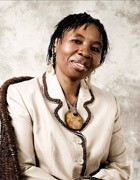
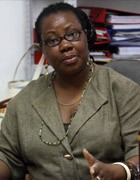
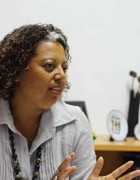
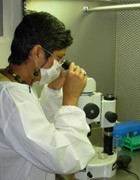
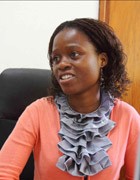
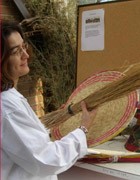
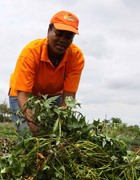
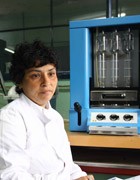
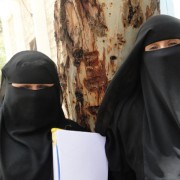
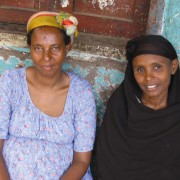
Comment
Make a general inquiry or suggest an improvement.